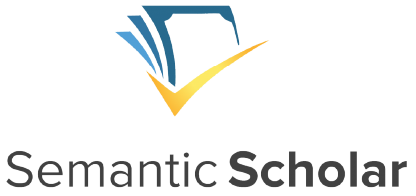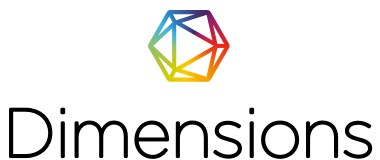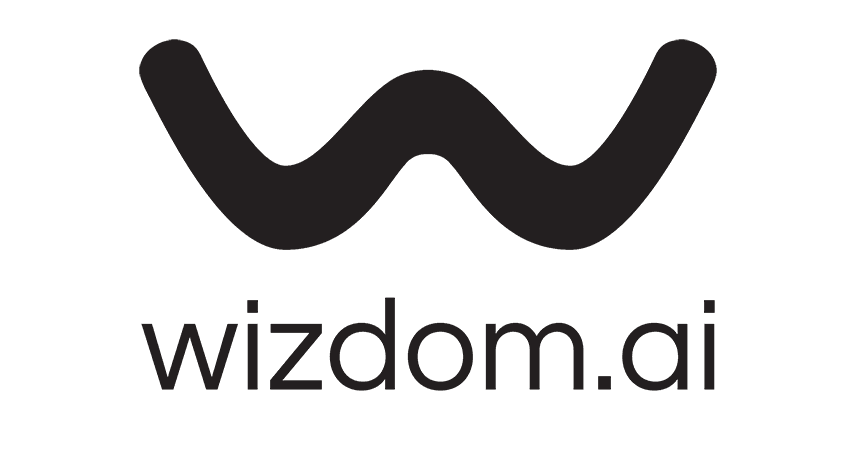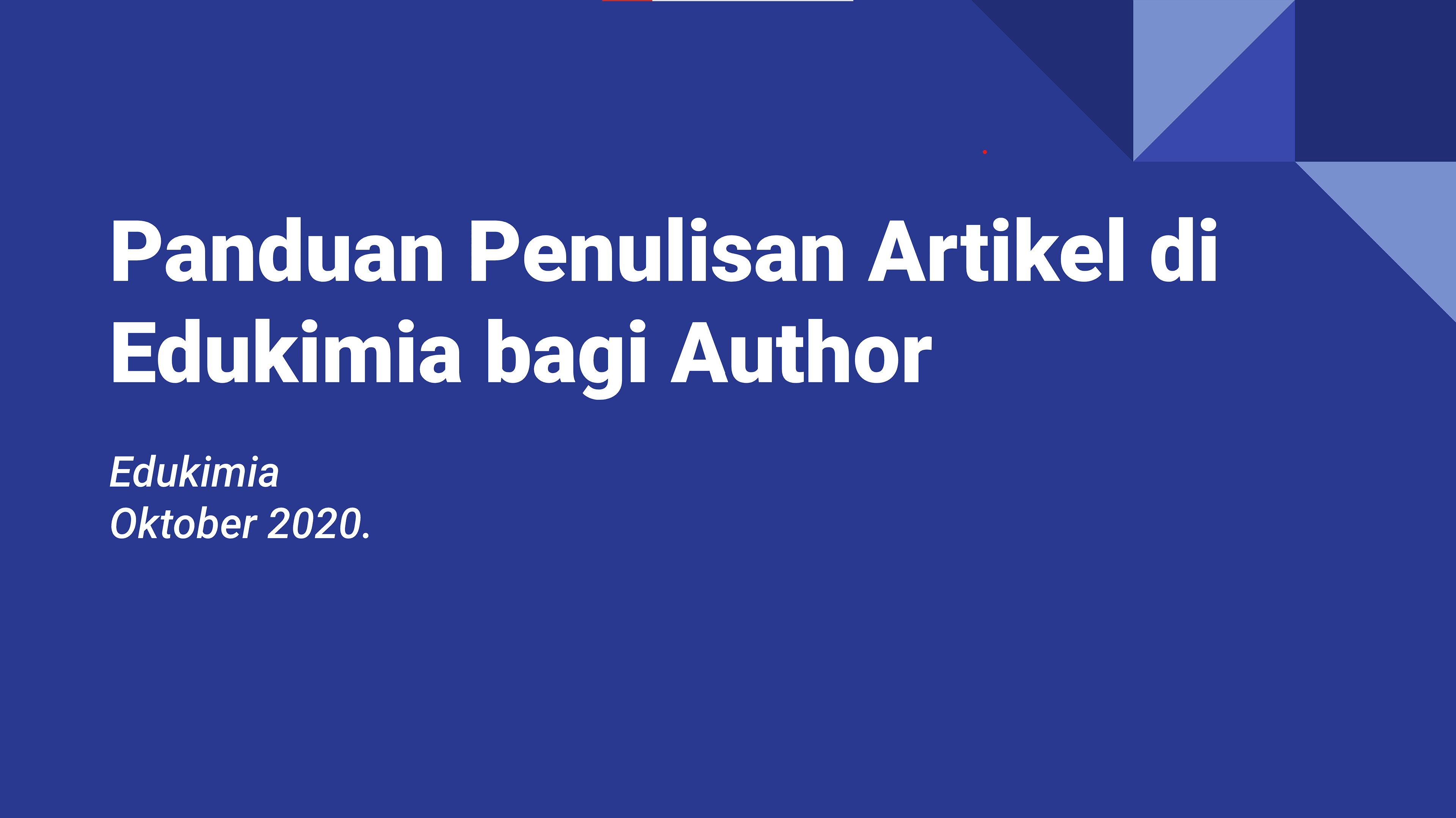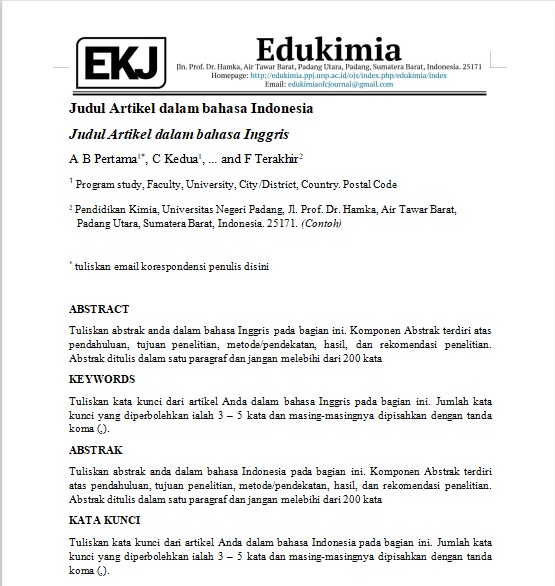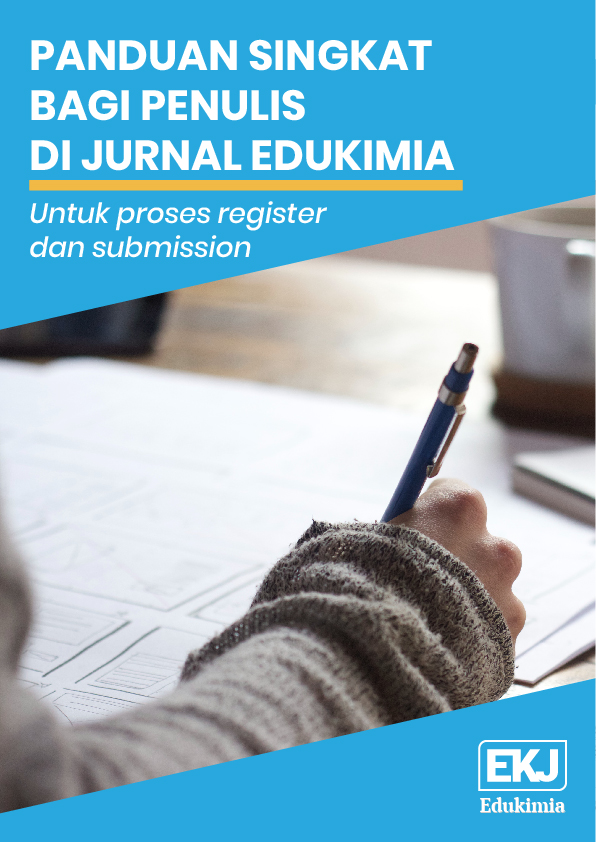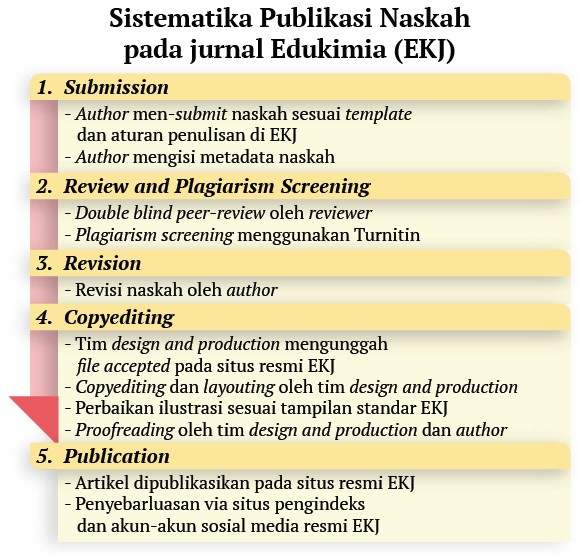Development of Salt Hydrolysis Module Based on Guided Discovery Learning for Student Class XI SMA or MA
Article Metrics
The abstract has been viewed for 335 times.The full pdf article has been downloaded for 222 times.
Abstract
Keywords
Full Text:
EKJ 3 (1) - 2021 - Artika (Bahasa Indonesia)References
Chang R. Chemistry. 10th ed. New York: McGraw-Hill; 2010.
Sudiana I, Suja I, Mulyani I. ANALISIS KESULITAN BELAJAR KIMIA SISWA PADA MATERI KELARUTAN DAN HASIL KALI KELARUTAN. Jurnal Pendidikan Kimia Indonesia [Internet] 2019;3(1):7-16.
Yuliani K, Saragih S. The Development of Learning Devices Based Guided Discovery Model to Improve Understanding Concept and Critical Thinking Mathematically Ability of Students at Islamic Junior High School of Medan. Journal of Education and Practice [Internet] 2015;6(24):116-128.
Sani R. Pembelajaran saintifik untuk implementasi kurikulum 2013. Jakarta: Bumi Aksara; 2014.
Hosnan M. Pendekatan saintifik dan kontekstual dalam pembelajaran abad 21: kunci sukses implementasi kurikulum 2013. Bogor: Ghalia Indonesia; 2014.
Dahliana P, Khaldun I, Saminan. Pengaruh Model Guided Discovery Terhadap Kemampuan Berpikir Kritis Peserta didik. Jurnal Pendidikan Sains Indonesia [Internet] 2018;6(2):101-106.
Udo M. Effect of Guided-Discovery, Student- Centred Demonstration and the Expository Instructional Strategies on Students Performance in Chemistry. African Research Review 2011;4(4):389-398.
Amri S. Pengembangan dan model pembelajaran dalam kurikulum 2013. Jakarta: Prestasi Pustakaraya; 2013.
Sunyono. Kajian Teoritik Model Pembelajaran Kimia Berbasis Multipel Representasi Kimia (SiMaYang) dalam Membangun Model Mental Pebelajar [Internet]. In: Seminar Nasional Sains. Surabaya: 2012. page 486-495.
Yerimadesi, Bayharti, Oktavirayanti R. Validitas Dan Praktikalitas Modul Reaksi Redoks dan Sel Elektrokimia Berbasis Guided Discovery Learning untuk SMA. Jurnal Eksakta Pendidikan (JEP) [Internet] 2018;2(1):17.
Yerimadesi, Kiram Y, Lufri, Festiyed. Development of guided discovery learning based module on colloidal system topic for senior high school [Internet]. In: SEMIRATA- International Conference on Science and Technology 2018. Medan: IOP Publishing; 2018.
Sucipta, Ahman E, Budiwati N. Metode Guided Discovery Learning terhadap Tingkat Berpikir Kritis Siswa Dilihat dari Motivasi Belajar. Indonesian Journal of Economics Education [Internet] 2018;1(1):1-8.
Plomp T. Educational Design Research: an Introduction [Internet]. In: An Introduction to Educational Design Research. Enschede: SLO - Netherlands institute for curriculum development; 2010.
Retnawati H. Analisis Kuantitatif Instrumen Penelitian (Panduan Peneliti, Mahasiswa, dan Psikometrian). 1st ed. Yogyakarta: Parama Publishing; 2016.
Sugiyono. Metode penelitian dan Pengembangan (Research and Development atau R and D). Bandung: Alfabeta; 2016.
Arikunto S. Dasar-Dasar Evaluasi Pendidikan. Jakarta: Bumi Aksara; 2013.
Refbacks
- There are currently no refbacks.

.jpg)


